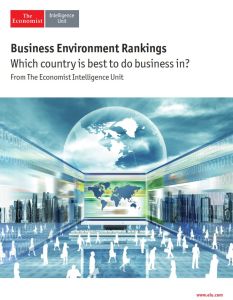Biggest winners: the Asian countries that have improved their ranking the most over the past year are Vietnam, Thailand and India. Vietnam is our overall biggest mover worldwide, climbing 12 spots in the rankings, while Thailand improves by ten places and India by six. Vietnam and Thailand, which have favourable policies for foreign investors, are benefiting from firms pursuing a China+1 policy of having supply chains in both China and another Asian market. This reflects China’s zero-covid policies, which have constrained business operations, and also allows firms to mitigate geopolitical risk associated with the US-China relationship. Vietnam’s score rises on the back of an improving economic outlook, and Thailand’s as a result of greater economic stability. India has historically struggled to attract manufacturing investment but is now well placed to benefit from similar trends. A strong, stable economy and access to a large labour supply form the basis of its appeal to investors. Policy reforms are making it easier to do business in India, and we expect major improvements in areas such as infrastructure, taxation and trade regulation, boosting investment.
Biggest winner: Costa Rica improves its global ranking by six spots, driven by higher infrastructure and technological readiness scores. Broad political consensus on maintaining a market-friendly, open economy has helped the country to secure a wide network of FTAs and has made it attractive to investors. This, along with accession to the OECD in May 2021, supports Costa Rica’s strong score for policy towards foreign investment.
Biggest losers: Chile drops by nine spots compared with last year, and Colombia by six, with scores for the political environment and policy towards foreign investment declining for both. In Chile this reflects policy uncertainty associated with an unresolved constitutional reform process that creates uncertainty and hurts political effectiveness, as well as the left-wing government’s plans to expand the role of the state in the economy. That said, Chile remains Latin America’s top-ranked country in the BER, at 30th in the global ranking. In Colombia economic policy under the left-wing president, Gustavo Petro, will become more interventionist and state-driven, involving stricter regulations for the oil sector.
